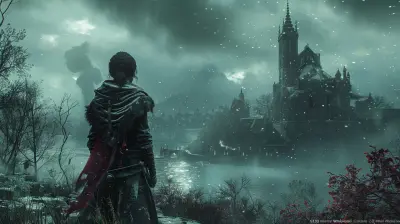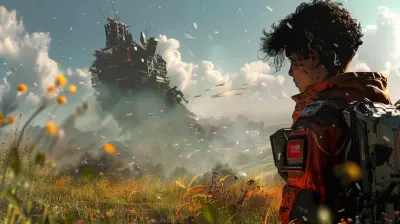The Most Heartbreaking JRPG Endings That Stuck With Us
19 July 2025
If you’ve ever poured 80+ hours into a JRPG, bonded with the characters like they were your closest friends, and then had your heart crushed by the ending... yeah, same. JRPGs have a knack for ripping out our emotions, tossing them in a blender, and then hitting turbo mode.
These aren’t just games. They’re stories that grip your soul, and when they end—especially tragically—they stick with you like your first real heartbreak. Grab some tissues, because we’re about to revisit the most heartbreaking JRPG endings that left us emotionally wrecked.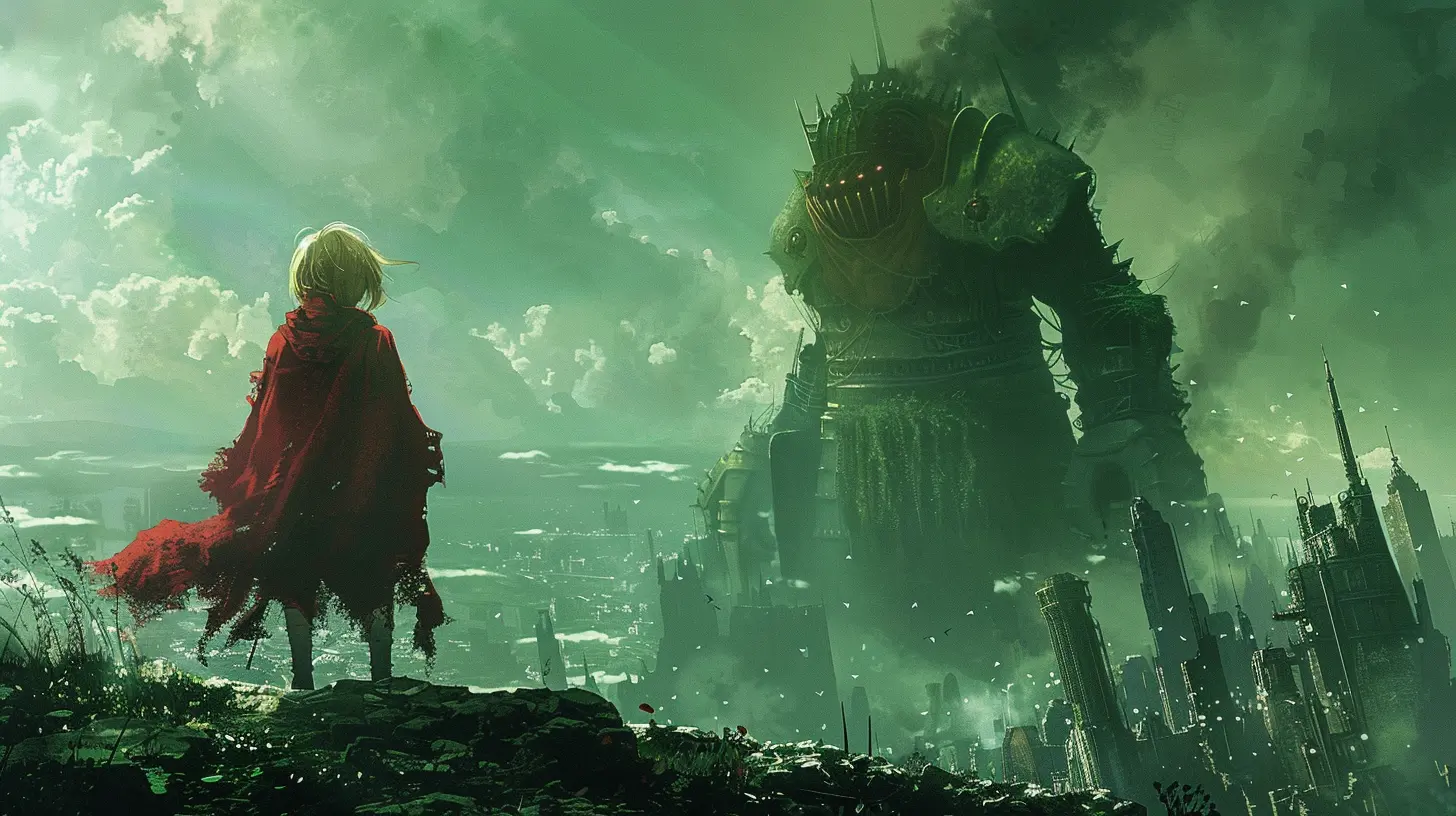
What Makes A JRPG Ending Heartbreaking?
Before we dive into the gut-punch endings, let’s talk about what makes a JRPG’s ending feel like a dagger to the chest. It’s not just the sad music (though that helps), or the unexpected character deaths (those definitely help too).It’s the time. The journey. The emotional investment. By the time we’ve reached that final cutscene, we’ve been through hell and back with these characters. We’ve seen them grow. We’ve seen them break. So when things don’t end the way we hoped? That hits different.
Sometimes you don’t get closure. Sometimes the hero doesn’t win. And sometimes, you’re just left staring at the screen wondering, “Wait… was that it?”
Let’s dive into the endings that did just that.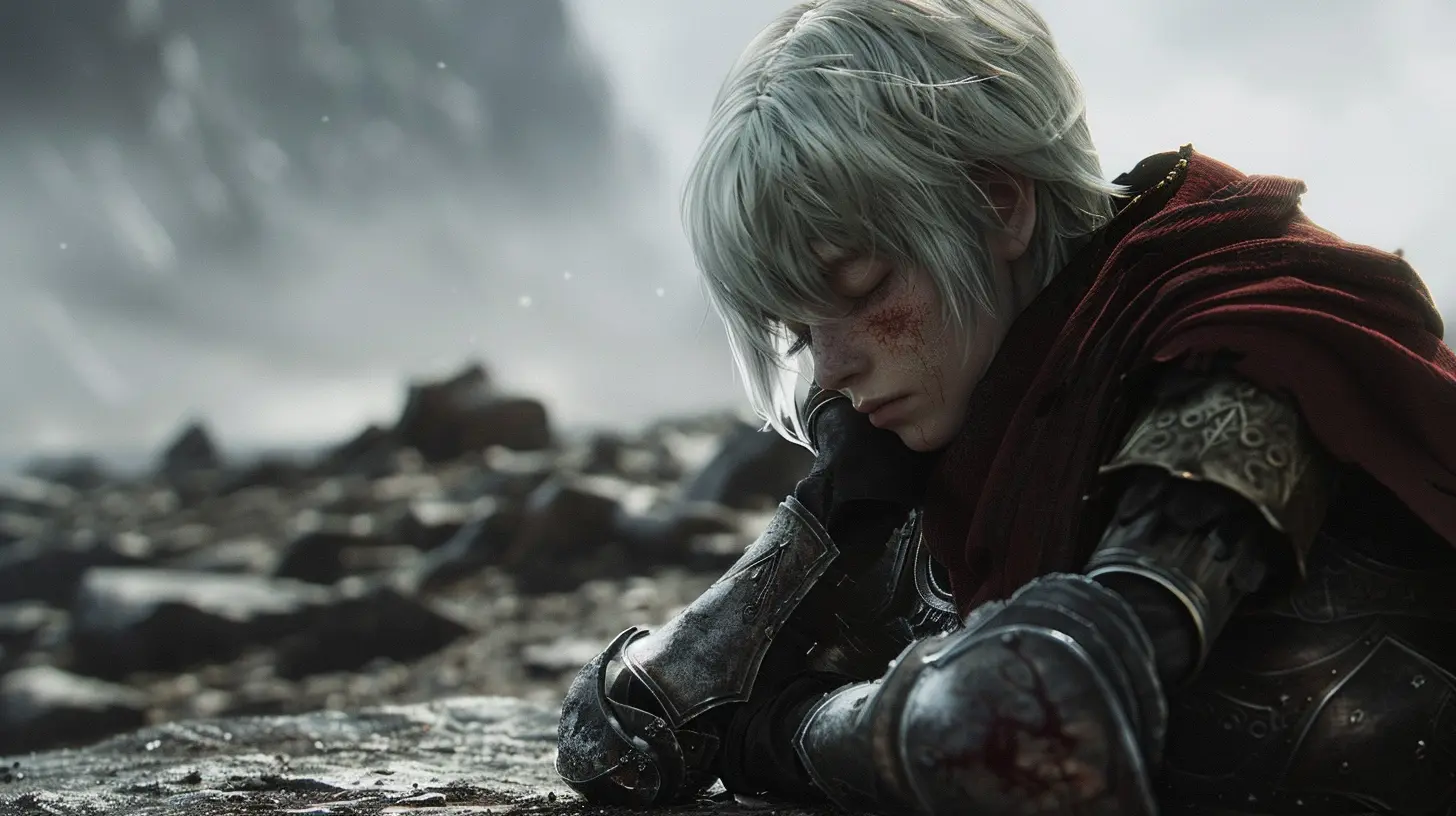
1. Final Fantasy X – Tidus Fades From Existence
Let’s just rip the emotional bandage off right away.You think you’ve won. You’ve saved Spira. You’ve defeated Sin. And just when you’re ready to ride off into the sunset with Yuna… BOOM. Plot twist.
Tidus isn’t real. He’s a dream of the Fayth. And dreams don’t get happy endings.
That last scene where Tidus smiles, takes a running leap off the ship, and vanishes into the Farplane? Yeah, I’m still recovering. Combine that with Yuna’s heartbreaking farewell at the stadium, and you’ve got one of the most soul-crushing finales in JRPG history.
And if you played through X-2 hoping to fix it? That might be a whole other tragedy, depending on the ending you got.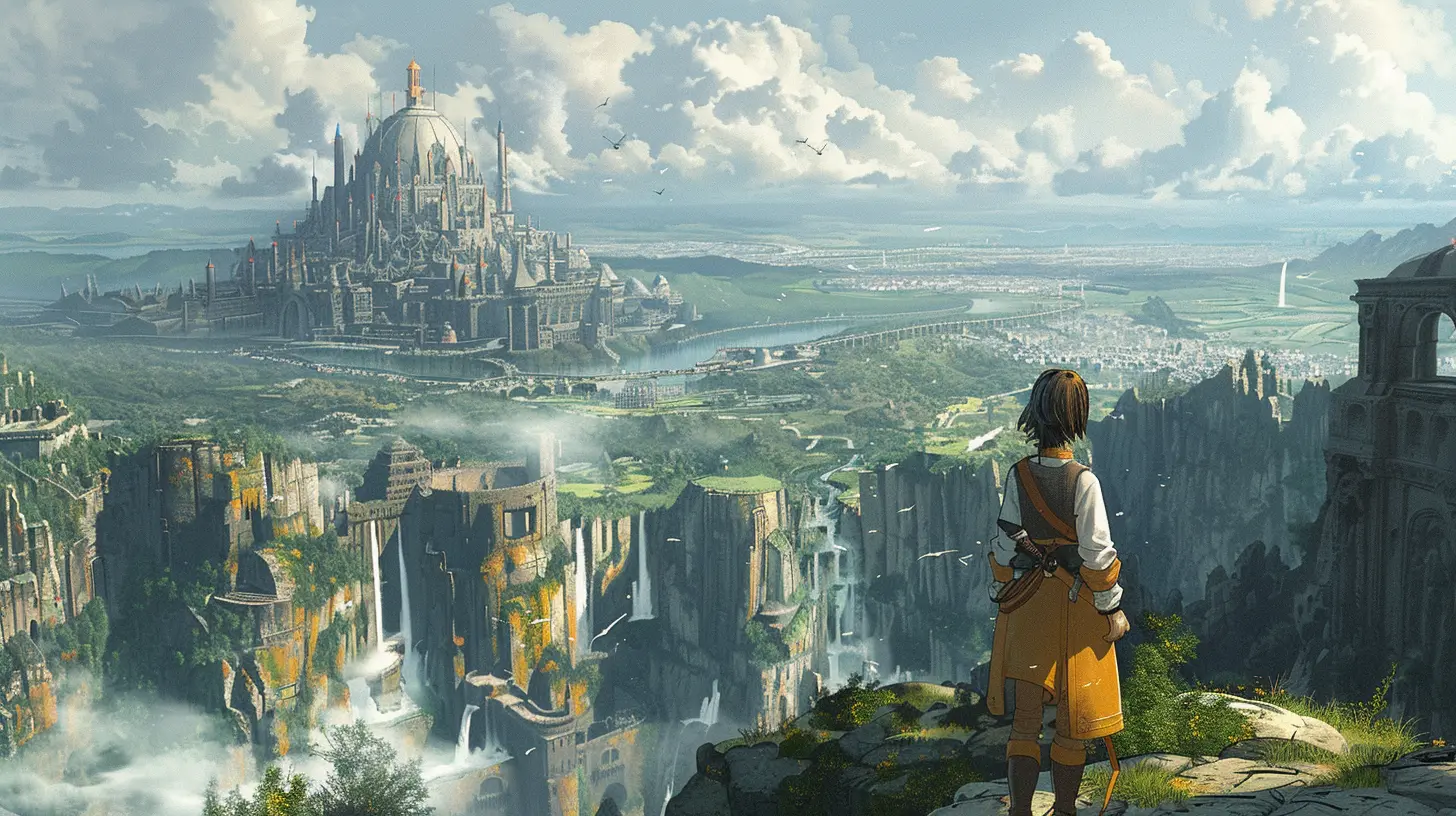
2. Crisis Core: Final Fantasy VII – Zack’s Final Stand
You already knew it was coming. If you played the original Final Fantasy VII, you knew Zack Fair wasn’t around in the main timeline. But knowing doesn’t make it hurt any less.Crisis Core gives us a rare look at what made Cloud who he is—and it’s Zack’s story.
By the time you get to that final fight, Zack is wounded, alone, and up against an army he can’t possibly beat. Yet he stands his ground with a smile and a sword.
That ending scene? Zack lying in the rain, whispering his last words to Cloud before handing him the Buster Sword? It's cinematic tragedy at its finest. And the title screen fade-in with “To be continued in Final Fantasy VII”… gut-wrenching.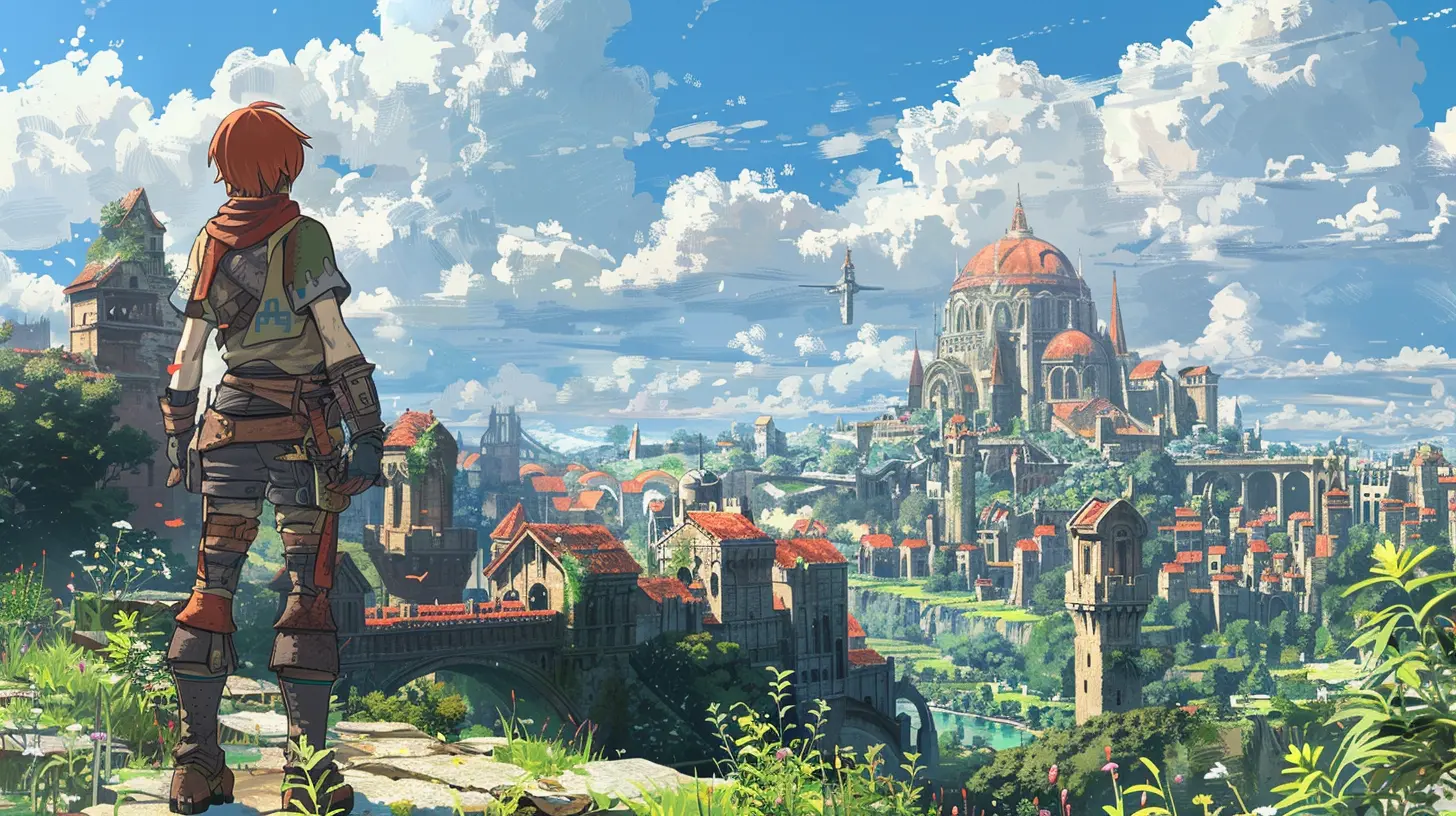
3. Persona 3 – The Silent Goodbye
Persona 3 doesn’t just make you cry—it makes you question your existence.After building relationships, battling shadows, and fighting death itself, the protagonist pays the ultimate price. He sacrifices himself to save humanity. But instead of a dramatic death, we get something quieter. More haunting.
He falls asleep on a bench. Peacefully. Alone.
That moment when your friends gather around, not knowing their friend is slipping away, is pure emotional devastation. There’s no fanfare. No glory. Just a quiet sunset and a soft goodbye.
Persona 3 made us weep not through spectacle, but through subtle, heart-stopping storytelling.
4. Nier – The Price of Love and Sacrifice
Let’s talk about the original Nier. Not Automata (that’s its own emotional monster), but the original one.Nier’s endings are all bleak. And I mean bleak. But what hits hardest is Ending D.
You literally delete your save file to save someone else. Think about that.
All your progress. All your items. Every boss fight. Gone. Forever.
It’s not just a game mechanic—it’s a metaphor. A brutally poetic one. You trade your entire identity for someone else’s future. And it leaves you staring at the title screen with nothing but your own thoughts.
You want stakes in a story? Nier throws the freaking controller at your face and says “Deal with it.”
5. Xenogears – Love in the Time of Trauma
Xenogears has layers. Like, psychology-major's wet dream levels of layers. It's complex, it's messy, and by the end, it's emotionally exhausting.The story of Fei and Elly spans lifetimes—literally. They’re reincarnated lovers in a cycle of pain and tragedy.
While the ending technically reuniting them sounds hopeful, it's bittersweet. After everything Fei’s been through—from battling his inner demons to confronting a god—it’s hard to say it feels like a “happy” ending.
Not to mention half the game’s story is told via textboxes and slideshows due to budget cuts. That feels like its own kind of heartbreak if we’re being honest.
6. Lost Odyssey – Immortality Doesn't Mean Happiness
Lost Odyssey is one of those deeply underrated gems that flew under the radar, but man… its narrative hits you like a train.You play as Kaim, an immortal who has lived for a thousand years. That might sound cool on paper, but the emotional toll? Devastating.
You watch everyone you love die. Over and over again.
The "A Thousand Years of Dreams" short stories are literary gut-punches all on their own. But the ending, where Kaim and fellow immortals choose to return to their own world, leaving behind the mortal friends they've grown to love? That’s a tearjerker worthy of an Oscar.
It’s the kind of ending that leaves you haunted by the beauty and horror of eternal life.
7. Valkyrie Profile – A Godly Tragedy
This one’s for the mythology fans.Valkyrie Profile lets you play as Lenneth, a Valkyrie collecting souls for Ragnarok. Sounds metal, right? But beneath the Norse god surface is a tragic identity crisis.
Turns out Lenneth isn’t just a cold goddess—she was once human. Her memories were locked away. And when she finally gets them back? It’s not a victory. It’s a flood of pain.
She remembers love, loss, betrayal. And depending on your choices, the ending can be evil, good, or just mysteriously painful.
The best endings still carry a heavy emotional toll because they’re soaked in self-sacrifice and the weight of duty vs. identity.
8. Suikoden II – The Price of Peace
Suikoden II pulls off something magical. It builds up a grand-scale war, thousands of lives, and deep political tension. But at its heart? It’s a story about friendship.Riou and Jowy. Two best friends torn apart by war, ideology, and fate.
Depending on how you play it, you can get a “peaceful” ending where the two reunite. But even that feels bittersweet. It’s not triumphant. It’s quiet. Like old wounds that will never fully heal.
And if you didn’t do everything right? The endings are darker. Much darker.
Few games make war feel this personal. This raw. Suikoden II does it flawlessly.
9. Final Fantasy VII – Aerith’s Death Was Just The Beginning
Would this even be a “heartbreaking JRPG endings” list without talking about Final Fantasy VII?Yes, we all know Aerith dies mid-game. That was already traumatic. But what people forget is that the ending itself is crushing in its ambiguity.
The final battle is won. Meteor is destroyed. But what happened to humanity?
Flash forward 500 years. Red XIII is running through a ruined Midgar with his cubs. No humans in sight. Did Sephiroth win in the long run? Did Holy do too good of a job?
No answers. Just questions and the vague feeling that you didn’t really win.
10. Chrono Trigger – The “Bad” Endings You Can’t Unsee
Chrono Trigger is known for its multiple endings—some cheerful, some… yeah, let’s not talk about "The Ruin" or "The Apocalypse."If you lose to Lavos, you literally watch the world get destroyed. Game over. Earth is scorched. And you just sit there, controller in hand, horror on your face.
Even the canonical "happy" ending isn't without heartache. Characters return to their timelines, friendships fade, and Robo waves goodbye—possibly never to be seen again.
Sometimes, saving the world still feels like saying goodbye.
Why We Love The Pain
So why do we do this to ourselves? Why do we keep playing JRPGs that emotionally wreck us?Because there’s beauty in the heartbreak. There’s meaning in the loss. These aren’t just games—they’re emotional rollercoasters we gladly strap into.
They remind us that life isn’t always fair. That victories aren’t always clean. And that sometimes, saying goodbye is the hardest part.
And yet… we keep coming back. Because as much as it hurts, it also heals.
Final Thoughts
There’s a reason these JRPG endings stay with us long after the credits roll. They make us feel something real. They give us stories worth remembering—even if they leave us ugly crying on the couch.So, which JRPG ending broke you the most? Are you still emotionally damaged from Tidus fading like a dream? Or did Zack’s final stand wreck your soul?
Let us know in the comments—and maybe recommend a box of tissues while you’re at it.
all images in this post were generated using AI tools
Category:
JrpgsAuthor:

Leandro Banks
Discussion
rate this article
2 comments
Judith Phelps
Heartbreaking? More like gut-wrenching! These JRPG endings didn’t just stick with us; they left emotional scars that still bleed every time we think about them!
October 20, 2025 at 4:00 AM

Leandro Banks
Absolutely! JRPG endings have a unique way of resonating deeply, leaving lasting emotional impacts that fans carry with them long after the credits roll.
Natalia Carr
These endings hit hard; they'll stay with me.
July 22, 2025 at 3:44 AM

Leandro Banks
Thank you! These endings resonate deeply with many of us. I'm glad they left an impact!
